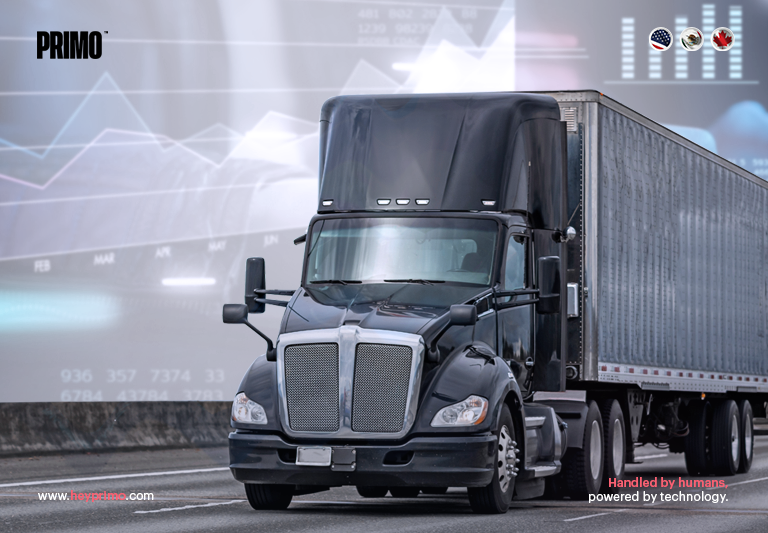How often do you think about FTL (full truckload shipping) needs within your supply chain? Chances are good that FTL capacity, rates, and expectations are top of mind, but there are very real challenges to implementing effective capacity utilization strategies. Further, shippers have to handle the limited availability of trucks during routine peak seasons which can significantly impact full truckload shipping operations. Consider this. Technavio states, “The Full Truck Load (FTL) market is estimated to grow at a CAGR of 5.3% between 2022 and 2027, increasing by USD 794.08 billion.” Shippers often struggle to secure reliable carriers, leading to delays and inefficiencies. The challenge multiplies during high-demand periods when truck capacity is stretched to its limits.This bottleneck can affect the entire supply chain, leading to missed deadlines and unhappy customers, but there are other core challenges that may arise. Let’s take a closer look at them and what you can do to reduce their impact.

Fluctuating fuel prices play a significant role in increasing freight costs. Additionally, shipping rates tend to spike during high demand periods, adding to the overall expense. Shippers need to find ways to manage these costs effectively to maintain profitability.
The volatility in fuel prices can make budgeting a challenge. For instance, a sudden increase in fuel costs can lead to unexpected expenses, forcing shippers to adjust their pricing strategies or absorb the additional costs. Utilizing a drayage service can help mitigate some of these costs.
Adhering to Department of Transportation (DOT) and industry-specific regulations is crucial for full truckload shipping. Companies must stay updated with changing compliance requirements to avoid legal penalties and ensure smooth operations.
The complexity of regulations can be daunting. For example, the Electronic Logging Device (ELD) mandate requires drivers to use electronic devices to log their hours, which can be a significant adjustment for companies used to manual logging.
The trucking industry faces high turnover rates, making it challenging to attract and retain qualified drivers. This shortage exacerbates the difficulty of maintaining consistent and reliable full truckload shipping services.
High turnover rates mean that companies are constantly in recruitment mode. For instance, a company might spend significant resources on training new drivers only to have them leave for better opportunities, creating a continuous cycle of hiring and training. Implementing a managed transportation system can help streamline these processes.
Efficiently planning routes to minimize transit times is essential for cost savings and timely deliveries. Unexpected delays and detours can disrupt schedules, making route planning a continuous challenge.
For example, road construction or accidents can force drivers to take longer routes, increasing transit times and fuel consumption. Advanced route planning tools can help mitigate these issues by providing real-time updates and alternative routes.
Preventing cargo theft and ensuring load integrity are critical concerns in full truckload shipping. Implementing advanced security measures can help maintain the safety of goods in transit.
Cargo theft is a significant risk, especially for high-value goods. For instance, using GPS tracking and secure seals can help monitor the shipment and deter potential thieves, ensuring that the cargo reaches its destination safely. This is particularly important in electronics logistics.
Real-time tracking and monitoring systems are vital for maintaining visibility and efficiency in full truckload shipping. Ensuring seamless communication between stakeholders further enhances operational effectiveness.
Technological integration can streamline operations. For example, a transportation management system (TMS) can provide real-time updates on shipment status, allowing shippers to make informed decisions and quickly address any issues that arise.
There are many different ways to solve the issues of securing FTL shipping capacity. Here are some of the more common tactics:
The ability to improve full truckload shipping is always going to be an integral focus of third-party entities, such as PRIMO. However, PRIMO brings an added level of capability with our team of experts and real-world knowledge of how to improve your supply chain. That includes knowing when to consider alternative routes and bid options to keep your costs aligned with the actual market demand. Connect with a PRIMO team member now to learn more about FTL shipping options.